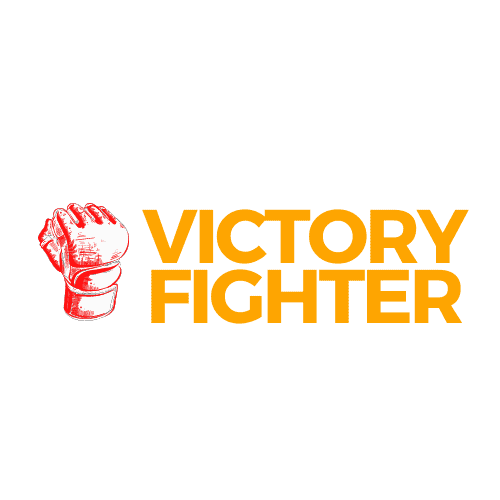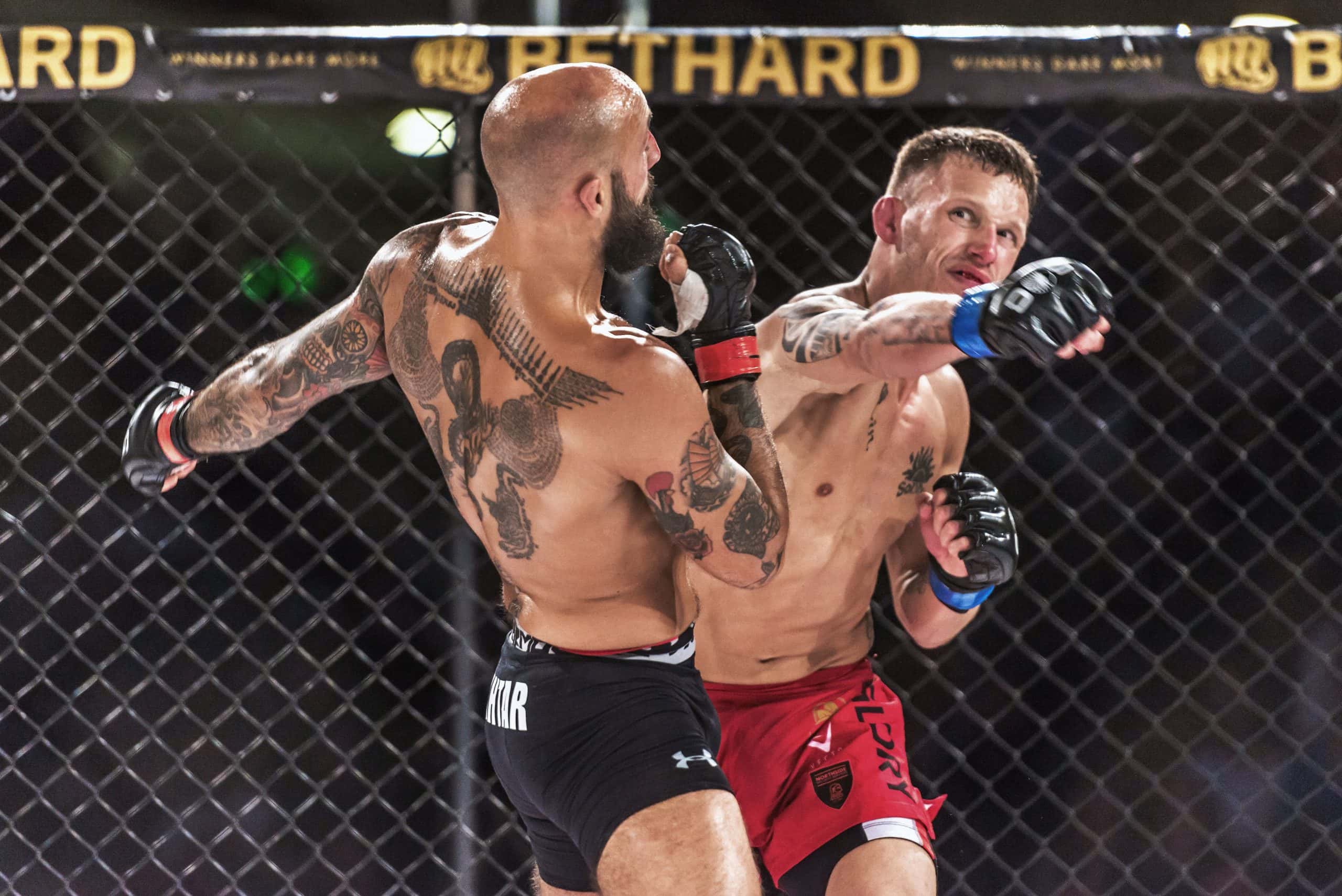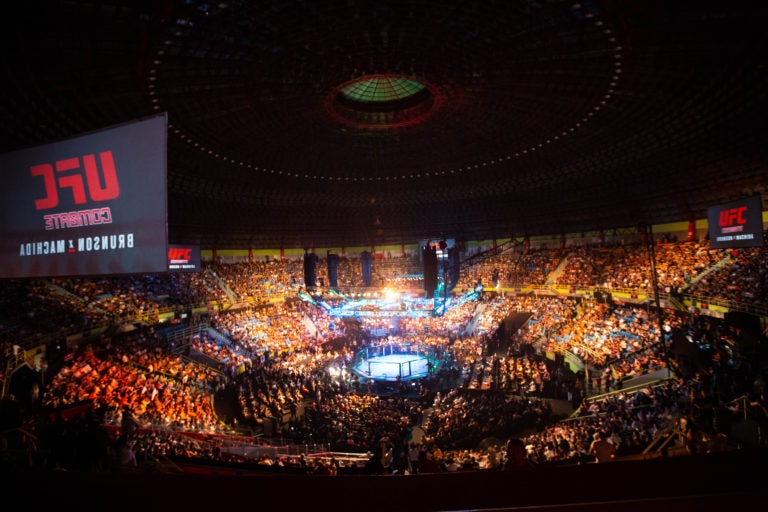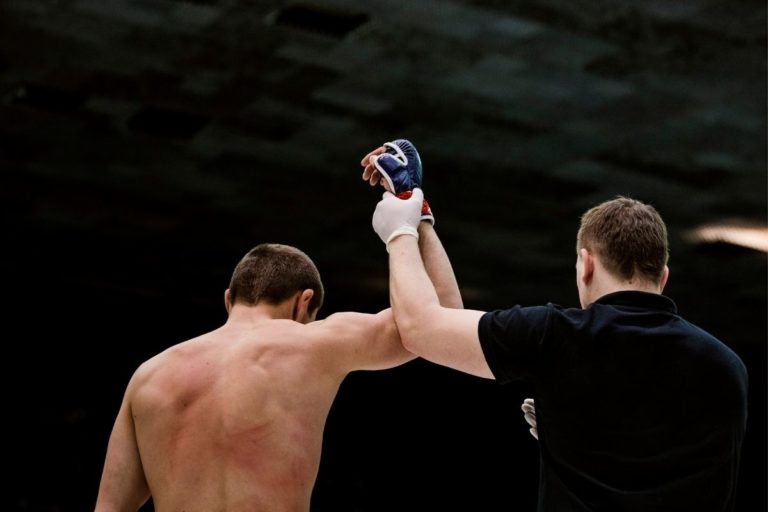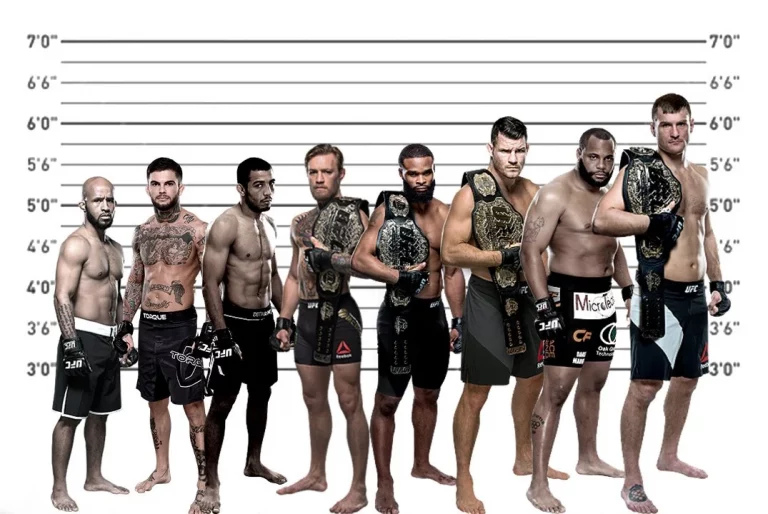How Often Do UFC Fighters Fight?
MMA is not like soccer or basketball where you can see your favorite player perform multiple times per week. No, top UFC fighters, for example, compete around once per year on average, often even less than that. In some other cases, it might need to pass over 2 or 3 years before you can see your favorite inside the cage again. But what about the rest of the roster? How often do UFC fighters fight?
On average, UFC fighters compete between 2 or 3 times on average per year but the number varies between the high and low level fighters. Fighters who are working their way up in a division might be more active and fight up to 5 times in a single year, as Kevin Holland did in 2020. As for top level fighters and champions, they usually compete once a year on average due to various reasons like the lack of events for example.
Stay with us to learn more about how often UFC fighters compete, and why so rarely.
How Often Do UFC Fighters Fight?
The UFC offers each fighter on their roster 2 or 3 fights per year on average which they have the full right to accept or decline. Fighters in the low-tier are usually the ones who accept every offer, and tend to fight at least 2–3 times a year, or even more, up to 5 times. On the other side, the ones inside the top 10 of each division are the ones who fight rarely, once or maybe twice a year on average.
The main reason why you won’t see big UFC stars competing often is the lack of pay-per-view (PPV) events. PPV events generate the most interest and include title fights and a lot of contenders on the card. “Fight Night” events are, in most cases, reserved for low and mid-tier fighters who are working their way up. The problem is that the UFC hosts around 40 events in total per year, out of which 12 are PPV, which is not enough to offer each champion more than 2 fights per year. Even when they make stacked cards with main and co-main being title fights, the UFC still doesn’t have the math to offer more fights to its champions.
But even if there are enough events, fighters would still compete rarely simply because the stakes are too high. You have to consider that most of high level fighters prefer to take more time than needed to prepare for a match and go through a full camp. If the title is on the line, or maybe it is a title elimination bout, fighters want to be sure that they are going to perform at their best. They would spend around 2–3 months inside the training camp, and if you combine that with the rest they take or suspensions they receive after the fight, you get why they don’t fight more than once or twice per year.
Fighters in the lower tier tend to fight more often simply because they are yet to prove their worth and build a name in a division. They tend to prove their loyalty to the company and build trust by accepting every offer, and staying busy is the only way they can climb the lathers. The other reason is the fact that most of the newcomers earn around $15,000 to show up so they need to stay active to keep their dream running.
Why UFC fighters do not compete more often?
MMA or any other combat sport is not like NFL or NBA where you can see your favorite athlete perform a couple of times a month, or even a week. In the best-case scenario, you will see them fighting a couple of times a year, the biggest stars only once or twice. But why? What are the reasons why UFC fighters do not compete more often?
Fighters deal with injuries and medical suspensions
This is the main reason why UFC fighters do not compete more often. MMA is a grueling sport that puts a lot of stress on your mind and body, both when it comes to training and competing. It is the sport that includes the highest injury rate (28.6 per 100 participants), and fighters get injured all the time. In some cases, they might need a week or two to recover from some minor injuries. But there are cases where they need to undergo surgery and take a long layoff.
As for the post-fight medical suspensions, the amount of time they must spend off the competition ranges between 1 and 6 months. In reality, this number is even higher because once recovered, fighters need to spend some time working out to get back in shape. You see, the ones who receive medical suspensions after the fight are not allowed to compete, spar, or train hard in the gym.
So if a fighter receives a 4-month suspension, for instance, they can’t do any training in this time span. Once the doctor gives them a green light, they need to spend a month or two just to get back in shape before starting training for a fight. So in total, the 4-month suspension might cost them 6 months in some scenarios.
There are not enough events (PPV and fight nights)
In modern times, the UFC hosts events just about every Saturday, at times even more than that if you include the “Contender Series”. There are around 40 events per year, and each UFC card includes around 12 to 13 fights on average. If you combine this with the fact that they have over 700 fighters on their roster, you get that there is a shortage of events. The math is quite simple here, the UFC just can’t offer more than 2 or 3 fights per year to each fighter, no matter what they do. Some fighters manage to fight more than 3 times by accepting to jump in on short notice or by having a short turnaround between fights. But this does not happen that often.
They can’t go through weight cuts that often
Cutting a lot of weight in the week leading up to a fight is a regular procedure all fighters need to go through. However, losing up to 30 pounds in less than a week is dangerous and has a huge impact on both your mind and body. During the process, you can often see fighters struggling to stay conscious, losing their vision, and crying just to hit the scale at the upper limit of their weight class.
After it is all over, they need a lot of time to recover from the entire process, and doing that 5 times a year is simply too hard, dangerous, and for some fighters, even impossible.
Contract disputes or other problems with matchmaking
Some UFC fighters, notably the top level ones, are in a contract dispute with the company which often puts their career on hold. Whether it is the money issue or something else, this is often a reason why some UFC champions or biggest stars compete rarely. A great example is Francis Ngannou and his contract dispute with the company which put him on the sidelines for over a year. In some other cases, fighters might even refuse to fight because they don’t like the opponent, or maybe think that they don’t have anything to gain in that fight. The great example is Nate Diaz who, after his back to back fights with McGregor, declined a couple of fight offers and was inactive for 3 years.
How long do UFC fighters need to wait between the fights?
From the legal perspective, UFC fighters can fight the next week if they want and are healthy. But bear in mind that this is only the case if they haven’t sustained any serious injuries in a previous fight which may result in a medical suspension.
The process is always the same, once the fight is over, each fighter needs to go through a post-fight medical check. If a doctor determines they have suffered injuries like bone fractures or concussions, they would give a fighter a medical suspension that ranges between 1 and 6 months. They are not allowed to compete in that time span, and neither the promotion has the right to offer them a fight. However, if a fighter is medically clear, they can take part in the next event if they want to.
The most famous case was when Khamzat Chimaev fought 2 times in 10 days in 2020. After beating John Phillips in his debut at “UFC on ESPN 13”, Chimaev asked the UFC for a quick turnaround and they matched him against a talented Rhys McKee at “UFC on ESPN 14”. ”The Wolf” went on to demolish McKee in the first round and earn a huge respect from both the promotion and the fans worldwide.
Can UFC fighters say no and refuse the fight?
Yes, UFC fighters are not obligated to accept every fight offer from the UFC and they are allowed to decline the fight. In modern times, this happens all the time and is often a reason why some fighters are not active as much as the fans would want them to be. However, it is worth pointing up that saying NO to the UFC comes at a certain price, especially if fighters do not have a legitimate reason.
For example, fighters may refuse a fight offer because they need to recover from injuries, deal with some private things, or they are out of shape and need more time to prepare. In these cases, the UFC would accept their decision and reach back to them once they are ready to fight. But there are cases where fighters refuse to fight because they want more money, or better treatment, or they maybe don’t like the opponent and their chances of winning.
Some fighters like McGregor or Diaz are too valuable to the company and have the negotiating power to ask for these things. But 99% of other fighters does not enjoy such privileges and refusing a fight might have a negative impact on their relationship with the UFC. They might lose the trust of the matchmakers, and maybe even get fired. This is also one of the reasons why low-tier fighters tend to say yes all the time, and even enter the fight carrying an injury.
